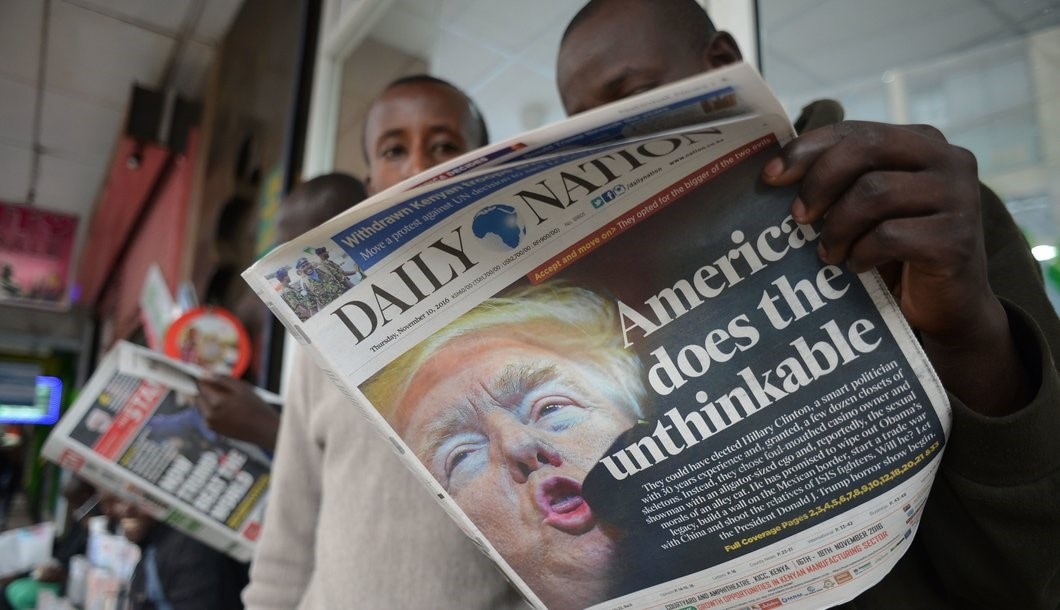|
by Chimmuanya Obi When Obama was inaugurated as the 44th President of the United States of America, Africa watched with keen interest. A man with a Luo heritage from the country of Kenya was expected to offer a new direction in US-African relations, one that would encourage economic partnership beyond aid, as well as political support. In his first term, Obama travelled to Ghana, Kenya, and Tanzania to promote political transparency and encourage leadership among a new generation of African men and women.[1] The Young African Leadership Initiative (YALI), hosted by our very own Batten School of Leadership and Public Policy, has invited young professionals from different African nations to learn effective strategies to become better leaders for their respective nations.[2] Despite initiatives like these, Obama could have done more to proactively include Africa in American foreign policy. On the political front, Obama called for more transparency in African governance, but rarely pushed leaders to be more accepting of the will of the people and human rights. For example, in 2010 the US was fairly quiet during the Ivory Coast conflict that broke out when then-President Laurent Gbagbo refused to accept his election defeat. The US was similarly quiet on the protests in Ethiopia last year, and the recently resolved election crisis in The Gambia. While Obama did not have a horrible relationship with Africa, it was below the expectations of many African people.  Source: Foreign Policy Source: Foreign Policy Now enter President Donald Trump. A character if there was ever one to enter the White House. In his inaugural address, he pledged to put “America first,” which could greatly alter the status quo of American foreign policy. While Trump has listed the usual areas of interests – Russia, China, the Middle East, Europe – in which he will address policy, Africa was left widely unnoticed. With a wild card like Trump in the White House, we could see an opportunity to reset US-Africa relations by focusing on areas of shared interest. One area to look at for this reset is terrorism.[3] While many see the Middle East as the breeding ground for radical Islamic terrorism, Africa has also attracted terrorist groups to set up base. In Somalia, al-Shabaab has caused much instability not only in the country but in neighboring Kenya where there is a current refugee crisis as Somalis flee violence in their country.[4] In Nigeria, Boko Haram has a strong presence, and one of their most heinous acts was the kidnaping of hundreds of school girls from Chibok in the North-Eastern part of Nigeria, in addition to killing 29 schoolboys during the night as they slept.[5] These actions propelled Boko Haram to international notoriety, sparking the Bring Back Our Girls campaign in 2014. Both organizations have one thing in common – they have pledged loyalty to the Islamic State. One of Trump’s campaign promises was to eradicate ISIS. This can be approached by reducing their sphere of influence, which can be done relatively easily. Despite the prevalence of both al-Shabaab and Boko Haram, the spread of their influence has been largely restrained. African Union troops led by Kenya have managed to secure parts of Somalia. In December, Nigerian forces pushed Boko Haram insurgents out of the Sambisa Forest, the Boko Haram stronghold.[6] Trump could offer American tactical support to help locate insurgents, working with these nations in their fight against terrorism. It would not require any ground force commitments, as militaries from both Nigeria and Kenya are capable and prepared to maintain lead combat roles. Economic partnership is another area where Trump and Africa can improve relations. Africa, specifically Ghana, Nigeria, Rwanda, South Africa and Tanzania, has a vibrant budding middle class as economic growth continues to increase on the continent. The next goal is to reduce aid dependence and increase financial self-sufficiency. While development agencies such as the United States Agency for International Development (USAID) have worked with African governments on development projects, facilitating transatlantic trade with the continent will be the next crucial step. Although Trump is taking a more populist approach to trade, Africa can still benefit by increasing trade directly with the United States. This could be done by taking a more specific approach when trading with the continent such as crafting bilateral trade deals with different African nations. Tailoring trade to specific countries would build on each nation’s economic strengths and combat their weaknesses. This would play well for Trump as it could be beneficial to reduce China’s influence on the continent through intense American economic cooperation. President Trump has already changed the dynamics of policy making in the US domestically and internationally. There is the possibility for a true reset in US-African relations, and for change that will benefit all parties. Trump has an opportunity to advance relations with the African continent in a less conventional way than his predecessors have. Trump and Africa could be an odd couple, but one that could be a potential highlight achievement in his presidential career. [1] Baker, P. (2009, May 16). Obama Will Travel to Ghana. Retrieved from https://thecaucus.blogs.nytimes.com/2009/05/16/obama-chooses-ghana-for-first-africa-trip/?_r=0 [2] Hussein, H. (2015, July 28). What exactly is Obama’s Africa legacy? Retrieved from http://america.aljazeera.com/opinions/2015/7/what-exactly-is-obamas-africa-legacy.html [3] Lilley, K. (2016, November 15). DONALD TRUMP'S AFRICA POLICY: THREE PRIORITIES. Retrieved from http://www.newsweek.com/three-priorities-donald-trump-africa-521375 [4] Campbell, J. (2016, December 22). Africa Shouldn’t Freak Out About Trump. Retrieved from http://foreignpolicy.com/2016/12/22/africa-shouldnt-freak-out-about-trump/ [5] 29 Boys Killed as Boko Haram Attacks Boarding School in Nigeria. (2014, February 25). Retrieved from http://www.nbcnews.com/news/world/29-boys-killed-boko-haram-attacks-boarding-school-nigeria-n37991 [6] Army presents captured Boko Haram flag to Buhari. (2016, December 22). Retrieved December 31, 2016, from http://punchng.com/army-presents-captured-boko-haram-flag-buhari/
0 Comments
Your comment will be posted after it is approved.
Leave a Reply. |
Categories
All
Archives
April 2022
|
ADDRESSVirginia Policy Review
235 McCormick Rd. Charlottesville, VA 22904 |
|
SOCIAL MEDIA |